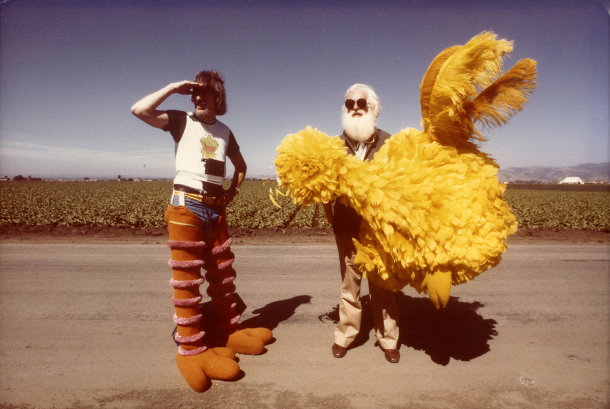
Director: Roger Ross Williams
Country: USA
Genre: Documentary
Official Trailer: Here
Editor’s Note: God Loves Uganda is now open in limited release
There’s a moment in God Loves Uganda, Roger Ross Williams’ documentary portrait of the International House of Prayer’s efforts to spread the gospel in the eponymous nation, where infamous pastor Martin Ssempa delivers a variation on his “eat the poo poo” speech that went wildly viral as an internet meme in 2010. It was easy to laugh at the absurdity of that anti-homosexual tirade three years ago; seen now, alongside the rest of the disturbing propaganda material from within the country that Williams explores, it seems so much less funny. Interviewing key members of the IHOP—an unfortunate acronym, perhaps—alongside a group of young missionaries and a Massachusetts-based priest who fled Uganda for fear of his life, Williams’ film finds in the multiple perspectives of its subjects a stark image of one of the world’s most avidly anti-LGBT nations.
…his damnation of the efforts of those whose faith he largely shares is one of the film’s most powerful indictments of their ideology, and a crucial indication of Williams’ intent not to demonise religion, rather only the extremist views actively endangering lives and forcing beliefs on an uneducated populace.
 Making for an incredibly uncomfortable viewing experience, God Loves Uganda eerily exposes the widespread institutionalisation of homophobia and hatred in the country, prominently pointing toward organisations like IHOP and the puritanical perspective they peddle as directly responsible for the persecution the nation’s LGBT community faces. Kapya Kaoma is perhaps the most interesting interview presence, having himself experienced first-hand the frightening state of affairs; his damnation of the efforts of those whose faith he largely shares is one of the film’s most powerful indictments of their ideology, and a crucial indication of Williams’ intent not to demonise religion, rather only the extremist views actively endangering lives and forcing beliefs on an uneducated populace.
Making for an incredibly uncomfortable viewing experience, God Loves Uganda eerily exposes the widespread institutionalisation of homophobia and hatred in the country, prominently pointing toward organisations like IHOP and the puritanical perspective they peddle as directly responsible for the persecution the nation’s LGBT community faces. Kapya Kaoma is perhaps the most interesting interview presence, having himself experienced first-hand the frightening state of affairs; his damnation of the efforts of those whose faith he largely shares is one of the film’s most powerful indictments of their ideology, and a crucial indication of Williams’ intent not to demonise religion, rather only the extremist views actively endangering lives and forcing beliefs on an uneducated populace.
At once the film’s defining high point and a sad indication of its erstwhile lack thereof is a disturbing moment where a gay rights activist mourning at the funeral of David Kato wails, his voice almost inaudible with grief and panic, “anyone could kill us”. It’s the sole moment in the movie where everything it’s said, every point it’s made and every argument it’s offered, suddenly feels real and relevant rather than simply eked out in argument. At no other point do the insistences it makes carry any considerable weight; nowhere else does it truly manage to find an emotional anchor for its moral objections—which isn’t to say its content doesn’t inspire emotion all of its own, only that the film struggles to locate that in the experience of individuals. It is at once the moment that saves the film, and the moment that damns it.
The closest they ever come to engaging their subjects, to actually pose the questions on which the film’s thesis is built to those best equipped to answer them, is a frail, barely-audible “why?” uttered in the face of a particularly appalling opinion and never followed up even with the most absurd excuse in return.
 That a film so concerned with a pressing world issue should be so seemingly scared to directly engage those responsible is a massive problem for God Loves Uganda: why, given the effort evidently expended to make the film in the first place, does Williams so timidly shy away from confronting the people he posits as his antagonists? The main reason the film itself suggests, on the evidence of its interviews, is that they’re all simply too friendly; it’s clear to see from the candid camaraderie with which the subjects speak that the crew’s angle hasn’t been made entirely clear, and that confronting them on their hypocrisy would be—in some respects—to blow cover. The closest they ever come to engaging their subjects, to actually pose the questions on which the film’s thesis is built to those best equipped to answer them, is a frail, barely-audible “why?” uttered in the face of a particularly appalling opinion and never followed up even with the most absurd excuse in return.
That a film so concerned with a pressing world issue should be so seemingly scared to directly engage those responsible is a massive problem for God Loves Uganda: why, given the effort evidently expended to make the film in the first place, does Williams so timidly shy away from confronting the people he posits as his antagonists? The main reason the film itself suggests, on the evidence of its interviews, is that they’re all simply too friendly; it’s clear to see from the candid camaraderie with which the subjects speak that the crew’s angle hasn’t been made entirely clear, and that confronting them on their hypocrisy would be—in some respects—to blow cover. The closest they ever come to engaging their subjects, to actually pose the questions on which the film’s thesis is built to those best equipped to answer them, is a frail, barely-audible “why?” uttered in the face of a particularly appalling opinion and never followed up even with the most absurd excuse in return.
As an undercover exposé of the dark underbelly of religiously-oriented overseas aid, God Loves Uganda does well to demonstrate the worrying world with which it takes issue. That it never manages, for whatever reason, to press the people it sees as responsible is a severe mistake, and one which constantly threatens to render irrelevant any good done elsewhere in the film. But this is an issue too important to be overruled by a filmmaker’s failings; Williams has cheated himself of the chance to make a truly great movie with this material, squandering the interrogative opportunities that fall abundantly at his feet. What he has done, however, is highlight a human rights crisis of the utmost importance: if not so itself, the information God Loves Uganda presents is essential.
[notification type=”star”]65/100 ~ OKAY. If not so itself, the information God Loves Uganda presents is essential.[/notification]



